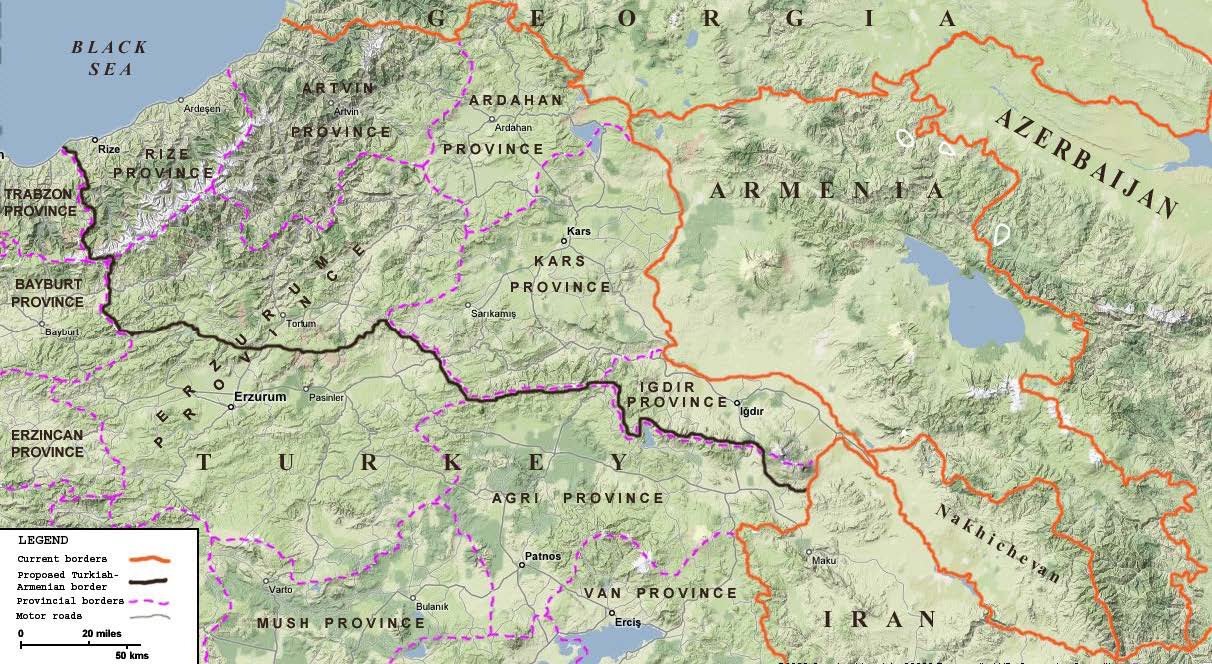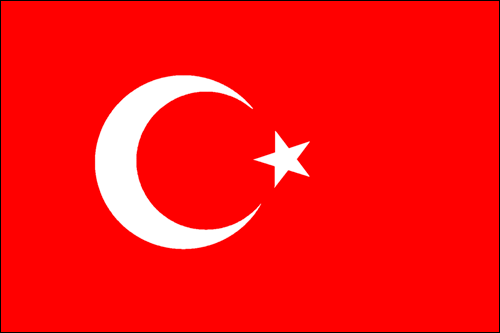David Davidian*, Yerevan, Armenia October 2018
Abstract: The precursor to the establishment of the Republic of Turkey was the violent assimilation and destruction of ethnic elements deemed non-Turkifiable, within its envisioned borders. The genocide of one and a half million Armenians, along with untold numbers of Greeks, Assyrians, Yezidis, and the active erasure of their cultures across Anatolia and surrounding lands was executed on a massive scale between the start of WWI and continued well into the 1920s. This systematic destruction was the culmination of a process that began two generations earlier. The theft of Armenian wealth and property kicked-started the Turkish Republic’s economy. What remained of Armenia was subsequently sovietized and relegated to non-self sufficiency. This geopolitical reality became the basis of today’s Armenian Republic. Threats to officially recognize this genocide by major world powers continue to hang over the head of the Turkish state. This crime of genocide remains undressed.
Background and Current Turkish Policy: The Republic of Turkey refuses to recognize the genocide of the Armenians and the role this crime played in the formation of that Republic. Further, Turkey actively engages in obfuscating the facts behind both. The Republic of Turkey does not want to be subject to reparations in any form nor re-write the basic tenets of its national ethos. The scale of death, destruction, distribution of stolen property was so enormous, that narratives are still passed down to the current generation of Turkish citizens, especially in prior Armenia-inhabited areas of Anatolia.
The Turkish War Crime Trials of 1919-1920 provides a precedent for the indigenous prosecution of those in the central government and local perpetrators responsible for the extermination of the Armenians and the plundering of their property. However, international interests, isolationist policies, oil and related colonial interests, pushed these trials into irrelevance. The 1919 King-Crane Commission, the Arbitral Award on the Turkish-Armenian Boundary by the U.S. President Woodrow Wilson associated with the Treaty of Serves, was subsequently superseded by the Treaties of Paris and Lausanne. The latter agreements abandoned Armenian claims and demands altogether.
In 1991, then Turkish President Turgut Ozal, a publicly announced feasibility study for the return of land in the Van region of Anatolia to the Armenians, noting the wisdom of facing up to one’s past. Due to a nationalist outcry, this Turkish initiative was abandoned.
However, given the unabated increase in the number of countries recognizing this genocide, the threat of recognition by influential regional powers, the central role this genocide has in daily Armenian culture, and the rise in significant compelling publications on this genocide, it serves the interest of the Turkish state to recognize this genocide, offer reparations in the form of land and monetary recompense to the Armenian state and people. Any territorial land transfer must result in significant sovereign Armenian access to the Black Sea, expanding and vastly diversifying Armenia’s arable land, mineral resources, etc., all denied Armenia as a result of this genocide. This land reparation can be accomplished by abandoning the partially abrogated Treaty of Kars. A negotiated Turkish-Armenian border adjustment is in Turkey’s interest, where:
- Turkey will be addressing a genocide reconciliation process on its terms, rather than anything being imposed on it.
- Turkey, having addressed its past by recognition and reparations, will receive unprecedented international characteristics of states such as Germany. Turkey can project this resulting soft power for decades.
- A self-sufficient Armenia greatly reduces the coercive influence of regional powers in advancing their agenda on Armenia, allowing relations to take place between Turkey and Armenia based on their mutual interests.
- The return of land along the lines of the enclosed map, Turkey can use its established industry to help Armenia create a functioning infrastructure with privileged Turkey’s new eastern border will be aggression-free.
- A self-sufficient Armenia can participate in east-west and north-south energy transport as well as providing enhanced routes for New Silk Road initiatives.
- The multidimensional economic and political value of a reparatory Turkish return of land to Armenia in its far northeast outweighs that territory’s current geopolitical and economic worth.
In summary: Major powers in the international community have threatened to recognize the genocide of the Armenians as a tool when extracting concessions from Turkey. This blackmail can end with Turkey’s recognition of this genocide with satisfactory reparations. The entire political dynamic of the Southern Caucasus will change and replaced with political and economic cooperation with Turkish recognition and having advanced land reparations.
* David Davidian is a US-born citizen residing in Armenia. He is an Adjunct Lecturer at the American University of Armenia.


